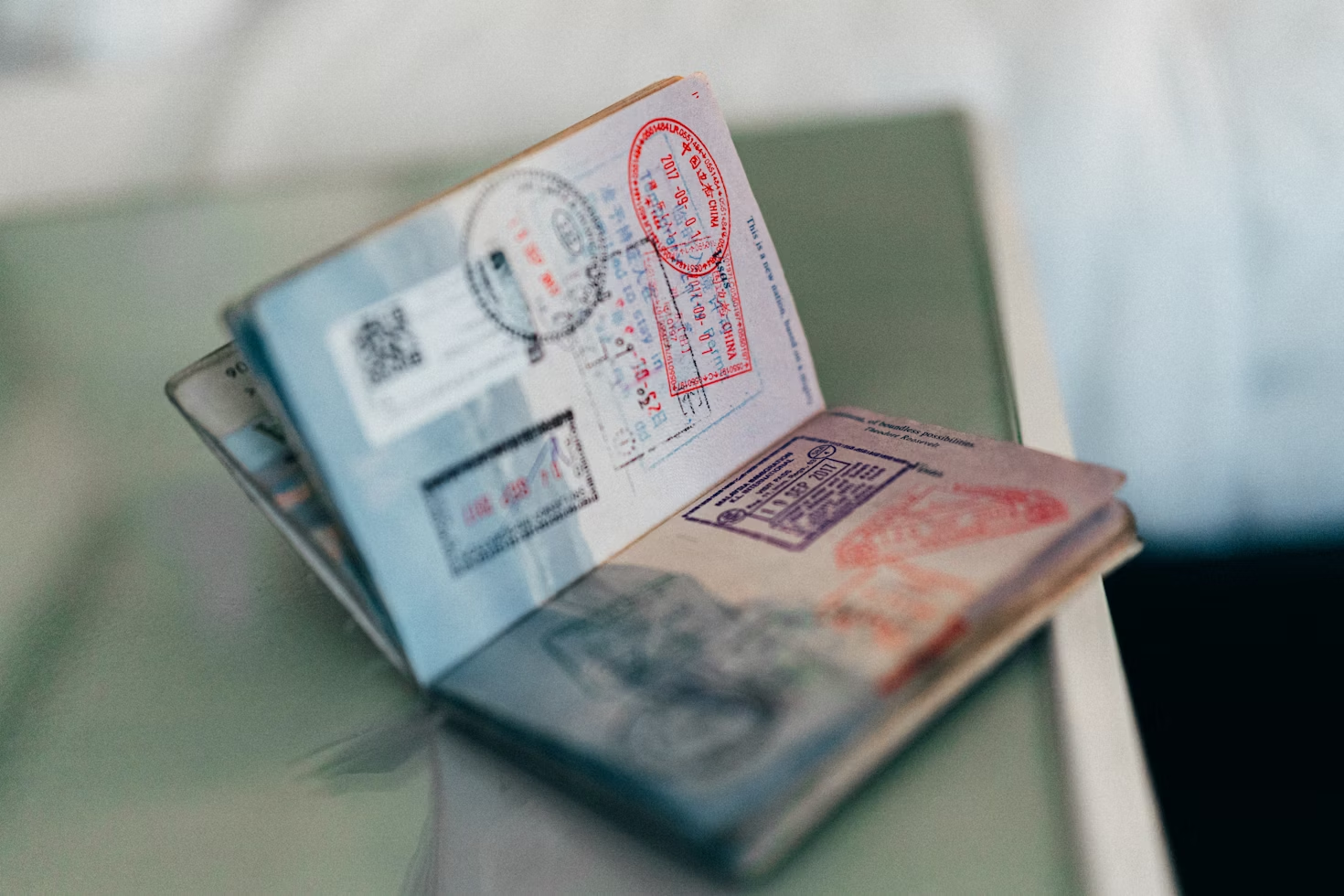Picking the right travel rewards credit card can make or break your travel budget. With so many cards out there, each promising big rewards and unique perks, it’s easy to feel lost in fine print and overwhelming options. Whether you want free flights, luxury upgrades, or just to avoid extra fees, knowing what matters most to you is the first step. This guide will help you zero in on the features and factors that actually impact your wallet, so you can pick a card that fits the way you travel.
This article will discuss:
- Learn how to compare annual fees versus rewards earned.
- Discover which cards give the best value for your spending habits.
- Get tips for avoiding hidden costs and maximizing perks.
- Find out how bonus categories can stretch your travel dollars.
- See how your credit score affects your card choices.
You’ll walk away with the know-how to sift through confusing offers and lock in benefits that match your travel style. Set yourself up for smoother trips and smarter spending right from your next adventure.
Understanding How Travel Rewards Credit Cards Work

Travel rewards credit cards do more than just help you cover expenses—they actually reward you for daily spending and travel purchases. These cards offer points or miles that you can put toward flights, hotels, rental cars, and more, letting you turn “everyday” into “getaway.” If you want to get the most from your travel budget, it’s smart to understand how these cards operate and what makes each one unique.
Earning Points and Miles
When you swipe a travel rewards card, you’re earning. Most cards offer a certain number of points or miles for every dollar you spend. Some even give boosted rewards in categories like groceries, dining out, or direct travel purchases.
Popular cards might offer:
- 2x points on travel bookings,
- 3x points on restaurant bills,
- 1x points on all other everyday spending.
Some cards greet you with a welcome bonus if you meet a minimum spending requirement in the first few months. These sign-up offers can jump-start your points balance, making your dream trip much closer.
Redeeming Rewards
How and where you use your points or miles makes a big difference. Most travel cards let you redeem for:
- Airline tickets (domestic or international)
- Hotel stays at major chains or boutique spots
- Rental cars
- Travel experiences like tours and activities
Some programs provide higher value if you book through the card’s online portal or transfer points to partner airlines and hotels. Always check the fine print or use online calculators to see what gives the highest value. If you want flexible options, look for cards with versatile rewards.
Understanding Fees and Interest
Nearly all travel cards come with fees—either annual, foreign transaction, or interest charges if you carry a balance. Higher annual fees can come with more generous perks, like airport lounge access, free hotel nights, or travel credits.
Common fees to lookout for:
- Annual fees: Ranges from $0 to $500+
- Foreign transaction fees: Usually 0%–3% (but many travel cards waive these)
- APR: Only matters if you don’t pay your full statement balance each month
Paying on time and in full each month helps you maximize your card’s value without letting interest eat into your rewards.
Extra Perks and Cardholder Benefits
Travel cards often include benefits that sweeten every trip, such as:
- Free checked luggage
- Priority boarding
- Trip delay/cancellation insurance
- Concierge services
- Global Entry or TSA PreCheck credits
These extras can more than make up for a higher annual fee, especially for frequent travelers. If you’re planning your next getaway, check if those benefits match what matters to you most.
The Fine Print: Restrictions and Expiration
Before you sign up, pay attention to restrictions. Some cards have blackout dates, limit redemptions, or devalue points if not used quickly. Always read the terms closely so you’re not caught off guard.
- Rewards may expire if your card goes unpaid or unused for too long.
- Some cards penalize late payments by pulling rewards.
Key Features to Evaluate in a Travel Rewards Credit Card

Before you choose your next travel rewards credit card, look closely at the fine print and the features that set each card apart. The best card for your wallet should not only pack a punch with rewards, but also fit your travel habits, budget, and plans. Travel cards can look flashy on billboards, but it’s these core features that make the biggest difference when you’re on the road or booking your next dream trip.
Signup Bonuses and Introductory Offers
Big signup bonuses grab your attention for a reason—they can be your ticket to free flights or hotel stays fast. But don’t let flashy numbers sway you alone. Be sure to check the actual requirements to snag that bonus.
- Minimum Spending: Many cards ask you to spend a certain amount within a set time frame (like $4,000 in three months). If that spend feels forced, skip it.
- Bonus Value: Not all points are equal. A 60,000-point bonus on one card may book you a luxury hotel stay, while the same number elsewhere might barely cover a budget flight.
- Deadline Awareness: Miss the spend window, and the bonus is gone. Mark it on your calendar as soon as you get approved.
Look past the promo—see what kind of value those points bring for your preferred destinations. A great bonus that requires too much spending or offers points worth very little is less of a deal than it first seems.
Earning Potential: Points, Miles, and Categories
The way a card rewards everyday spending can impact how fast you collect free travel. The best travel cards make it easy for you to stack miles or points on things you already buy.
- Category Bonuses: Some cards give extra rewards for travel, dining, gas, or grocery store purchases. Look for cards that match where you spend most.
- Flat Rate or Tiered: Decide if you want the simplicity of a flat rate (same rewards everywhere) or want to strategize with higher rates in certain categories.
- Rewards Flexibility: Can you transfer points to airlines and hotels, or are you stuck redeeming through the bank’s own portal?
- Loyalty Program Partners: Some cards tie in with select airlines or hotels, letting you rack up loyalty perks in addition to credit card rewards.
If you want to see how trip interruptions could affect your plans, check out these handling unexpected travel delay tips for more travel wisdom.
Annual Fees and Hidden Costs: Discuss how to weigh upfront and recurring costs against benefits
Annual fees are a reality for most travel rewards cards, but they only make sense if the rewards and perks outweigh the cost.
- Weigh the Fee: Compare the annual fee to what you actually earn back in rewards and benefits. If the math doesn’t add up, try a card with a lower or no annual fee.
- Foreign Transaction Fees: Many travel cards skip these, but double-check. Paying 3% extra on every overseas purchase adds up quickly.
- Other Sneaky Fees: Be alert for balance transfer fees, late payment charges, or higher APRs.
Additional Perks: Insurance, Lounge Access, and Exclusive Services
The icing on the cake for any travel card is the perks, which can often make or break your travel experience.
- Travel Insurance: Look for coverage like trip cancellation, delay, lost bag, or rental car insurance. It can save you hundreds if things go wrong.
- Airport Lounge Access: Free food, comfy chairs, and Wi-Fi take the edge off any layover.
- Hotel and Flight Upgrades: Some cards offer free upgrades, annual hotel credits, or elite status with loyalty programs.
- Concierge and Exclusive Access: 24/7 help, event presale tickets, or special experiences can make your trip smoother and more memorable.
Evaluating travel cards by these features makes choosing the right one feel less like guesswork and more like a smart strategy—one that ensures every swipe brings you closer to your getaway.
Matching Card Features to Your Travel and Spending Habits
Not every traveler benefits from the same credit card features. Your way of exploring the world—and how you spend along the way—will help narrow down the options. To make your rewards card work for you, focus on the perks that actually match your lifestyle. A card should feel like a travel companion, not an extra chore.
International vs. Domestic Travelers
Frequent flyers heading overseas face different challenges compared to those exploring closer to home. If you plan to jet-set around the globe, make sure your credit card is up for the journey.
- Foreign transaction fees: Many cards add a 3% fee for every non-US purchase. If you travel abroad, skip cards with these fees or else you’ll wipe out your rewards.
- Global acceptance: Not every card is accepted worldwide. Visa and Mastercard are the safest bets almost anywhere. Some cards, especially American Express or Discover, have less coverage in certain countries.
- Travel protections: Features like lost luggage insurance, trip delay coverage, and rental car insurance are especially valuable for international trips, where mishaps can get pricey.
- Currency conversion: Cards that use the official exchange rate with no markup help you avoid hidden costs.
Domestic travelers, on the other hand, might worry less about global usage but should still look for:
- Rewards on domestic airlines, gas, and hotels.
- Perks like free checked bags, rental car insurance, and roadside assistance.
- No blackout dates within US-based programs.
If you’re planning eco-friendly train travel in Europe or sticking to US road trips, pick a card with rewards that align with your style.
Solo Travelers, Couples, and Families
Who you travel with makes a difference in what card features you should chase. The right perks can be a lifesaver—or a headache—depending on the size of your group.
Solo travelers often want:
- Flexible redemption options for flights and hotels.
- No-fee cards or those with high-value lounge access to make solo airport time relaxing.
- Strong travel insurance, covering trip delays or solo medical emergencies.
Couples benefit from:
- Cards that allow pooled points or free companion tickets.
- Authorized user perks, so both partners can earn and redeem.
- Travel protections that extend to partners, like trip cancellation for two.
Families should look for:
- Free checked bag perks for multiple passengers.
- Higher rewards on groceries, dining, and everyday spending.
- Large sign-up bonuses that easily cover several tickets.
- Trip delay, lost luggage, and medical cover for the whole family.
Many cards offer extra travel insurance and perks, perfect for group adventures or covering random mishaps when traveling with kids—or simply splitting the last-minute hotel bill.
Matching your card with your travel habits means more value, less stress, and smarter spending every trip.
Final Thoughts
Choosing the best travel rewards credit card is about matching features to your real-life needs, not just chasing big bonuses. When you focus on the perks, fees, and rewards that fit your travel style and spending, your card becomes a tool for better, more affordable adventures. The right card will stretch your budget and bring extra comfort and confidence to every trip.
- Make a list of your travel goals and typical expenses.
- Gather the details on your credit score for better approval odds.
- Compare at least three cards that fit your trip plans and spending.
- Use bonus categories and plan for minimum spend requirements up front.
- Keep reading smart strategies for stretching your travel dollars.
Thank you for making time to learn with us. What’s your top travel goal this year? Share your journey or join conversations with other travelers in our upcoming tips and guides.






14 Responses
Finally, an article that breaks down the travel rewards game! Been trying to max out points for years. Thanks, TouristTales, for keeping it simple. Anyone else here thinks signup bonuses are the real deal?
Totally agree, TrekkerTim99! I aim for those bonuses every time I pick a new card. It’s like free money for travel!
yeah but do you guys not get hit with the annual fees after? or is it still worth it?
so confused about points and miles, can they expire or what? somebody clear this up for me, nothing seems simple.
I appreciate the segment on extra perks. Rewards aren’t just about flying; it’s also access to events. Would’ve loved more info on this though. Experiences matter as much as flights.
dude, this article’s cool but does anybody actually understand all these card offers? feels like you need a degree.
Great insights on matching card features to travel habits! As a digital nomad, I look for no foreign transaction fees and global access. Any cards you recommend specifically for us?
all these cards seem to want is your money on fees. show me a card that really gives back more than it takes, then i’ll be impressed.
Love the article! It’s like you read my mind on the travel rewards confusion. Has anyone tried mixing and matching different rewards cards to maximize benefits? Sounds like a game plan.
If I get one more credit card, I might just earn enough points to fly to the moon. But seriously, is stacking cards a good idea or a one-way ticket to debt city?
This article makes a good attempt at demystifying travel rewards. But, does anyone feel like these reward systems are designed to be overly complicated on purpose? Sometimes it feels like you need a map.
what if the credit cards are tracking where we go with the rewards? like, you think you’re earning points, but really they’re earning data on you. anyone else thinking this?